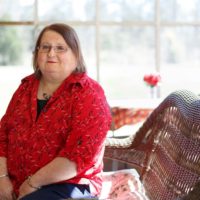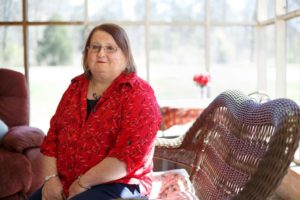Before their wedding day, Michael Ely and James Taylor hardly ever held hands in public.
When they first started living together, more than four decades earlier and only two years after the Stonewall uprising, it was dangerous to be an openly gay couple. Homosexuality was still considered a mental illness by the American Psychiatric Association.
But surrounded by close friends on that day in November 2014, two weeks after Arizona began legally recognizing same-sex marriages, Ely and Taylor walked out of the Pima County courthouse holding hands as a married couple.
“I can’t even begin to tell you how that felt,” Ely said. “After that we started holding hands everywhere we went.”
Seven months later, Taylor died of liver cancer, and Ely was left mourning the loss of his partner of 43 years, a skilled guitarist who he always called “Spider.” Because Taylor, a structural mechanic for aerospace company Bombardier, was the main breadwinner for the couple, Ely was also left without an income.
And now, more than three years after his partner’s death, Ely still has not qualified for Social Security survivor’s benefits. The Social Security Administration requires that a couple be married for at least nine months before a spouse’s death for a widow to collect survivor’s benefits. Because Ely was only married to Taylor for seven months before he died, he is not eligible.
Last week, Lambda Legal, an LGBTQ legal advocacy organization, filed a lawsuit against the Social Security Administration on behalf of Ely, arguing that excluding surviving same-sex spouses from Social Security benefits based on the nine-month requirement violates their equal protection and due process rights under the Constitution.
“By denying same-sex couples an important benefit associated with marriage, that they paid for with their own taxes, the federal government is replicating the same harms of marriage inequality,” said Peter Renn, a lawyer with Lambda Legal. “They’re basically putting same-sex surviving spouses to an impossible test that they can’t meet.”
A spokesman with the Social Security Administration said the agency does not comment on pending litigation.
Ely is one of several same-sex surviving spouses across the country who have been denied social security benefits based on the nine-month requirement, Renn said. He could not estimate how many such cases exist, but said his office has received numerous calls from people in similar situations. He also anticipates more cases could emerge soon, now that spouses like Ely have exhausted all of their administrative options, appealing their cases through the Social Security Administration.
“People like Michael have been basically in administrative purgatory for a number of years,” Renn said.
Lambda Legal has also joined a lawsuit in New Mexico on behalf of Anthony Gonzales, whose husband Mark Johnson, a fifth-grade teacher, died of cancer in February 2014. Gonzales and Johnson were in a relationship for almost 16 years, and they got married on the first day they were legally allowed to do so in New Mexico — Aug. 27, 2013. But because their marriage lasted less than nine months, Gonzales has not been able to qualify for Social Security survivor’s benefits.
by Samantha Schmidt, Washingtonpost.com, November 28, 2018
Click here to read the entire article.
The post His husband died months after they were able to marry. He’s still fighting for Social Security benefits. appeared first on Time For Families.
Source: Time for Families












